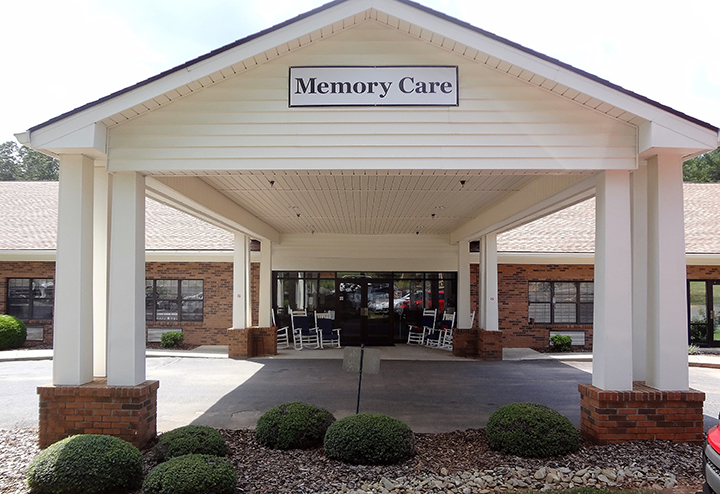Relied On Support and Compassionate Services for Alzheimers Care Charlotte
Relied On Support and Compassionate Services for Alzheimers Care Charlotte
Blog Article
Creating a Safe and Helpful Environment for Alzheimer's Care
The production of a secure and helpful setting for individuals with Alzheimer's is vital in boosting their lifestyle. This involves not just physical adjustments within the home, such as minimizing threats and incorporating familiar elements, but also the application of organized routines and significant activities that satisfy their cognitive needs. In addition, comprehending the psychological and emotional dimensions of care can substantially affect their feeling of protection and connection. Checking out these complex methods can expose critical insights right into efficient caregiving methods that may transform the day-to-day experiences of both caregivers and clients.
Comprehending Alzheimer's Needs
Often, people with Alzheimer's disease show an array of requirements that require customized methods to care. As the condition proceeds, cognitive decline materializes in different ways, impacting memory, thinking, and also the ability to execute day-to-day tasks. Caretakers must recognize these evolving demands to give proper assistance and guarantee a better of life for those impacted.
One vital facet of comprehending Alzheimer's needs is acknowledging the relevance of regular and experience. Individuals often locate comfort in well-known patterns, which can lower anxiousness and confusion. Caregivers need to aim to create organized everyday routines that incorporate meaningful tasks aligned with the individual's capacities and rate of interests.
Additionally, efficient interaction is critical. People with Alzheimer's may struggle to reveal themselves or comprehend complicated language. Caregivers must employ easy, clear language, use non-verbal cues, and practice energetic listening to promote understanding and link.
Lastly, emotional and social requirements can not be ignored. Giving chances for social interaction and maintaining relationships can considerably enhance psychological health. Caretakers ought to urge involvement in area tasks or family members celebrations, advertising a feeling of belonging and function. Recognizing these diverse requirements is essential for producing a supportive treatment setting.
Designing a Safe Home
Producing a safe home for people with Alzheimer's condition is important to reducing risks and advertising freedom. The design of the home must focus on safety while permitting individual comfort. Get rid of prospective threats such as loose carpets, sharp objects, and mess, which can lead to drops or crashes. Guarantee that pathways are clear and well-lit, as correct lighting reduces disorientation and improves movement.
Incorporating adaptive attributes is likewise crucial. Mount grab bars in shower rooms and near staircases, and take into consideration using non-slip mats in wet locations. Furthermore, using contrasting colors for floors and walls can assist in differentiating areas, assisting to mitigate complication.
Experience is crucial for individuals with Alzheimer's. Individualizing the atmosphere with familiar objects and photographs can reinforce a sense of belonging and safety and security - Alzheimers Care Charlotte. It is additionally valuable to have a designated area for day-to-day activities, such as analysis or crafting, which can supply structure to their day
Finally, executing a protected exterior space permits secure exploration while getting in touch with nature. By thoughtfully creating the home environment, caregivers can dramatically enhance the lifestyle for people living with Alzheimer's disease.
Enhancing Interaction Abilities

Non-verbal communication, consisting of faces, gestures, and touch, plays a vital duty in communicating compassion and understanding. Preserving eye contact and a tranquil behavior can boost the comfort degree of the individual, advertising a sense of safety and security.
Moreover, it is important to exercise active listening. This involves being completely existing, revealing patience, and enabling the individual to express themselves without disruption. Rep might be needed; caregivers need to be prepared to take another look at subjects or inquiries, as people with Alzheimer's may have problem with memory recall.
Furthermore, using visual help or cues, such as photographs or familiar objects, can promote acknowledgment and engagement. Eventually, improving communication abilities is regarding constructing trust and creating an atmosphere where people really feel heard, valued, and understood, thereby enriching their quality of life.
Urging Social Communication
Fostering significant social communications can significantly boost the well-being of people with Alzheimer's condition. Engaging with others not only aids battle sensations of seclusion yet also boosts cognitive feature and psychological health. Structured social tasks, such as team video games, arts and crafts, or songs treatment, create chances for citizens to attach with peers and caregivers, which can cause improved mood and minimized anxiousness.
Creating an inviting setting that encourages socialization is vital. This can be achieved by organizing communal areas that promote interaction, such great post to read as comfy seating areas or activity spaces. In addition, incorporating acquainted and culturally appropriate activities can spark memories and urge participation, permitting people with Alzheimer's to feel more linked to their previous experiences.
In addition, caretakers must be trained to recognize and promote social interaction amongst homeowners. By prioritizing social interaction, we can substantially enhance the lives of those living with Alzheimer's, cultivating a sense of neighborhood and belonging.
Supporting Caretaker Wellness

To support caretakers, organizations should use regular training and educational resources to you could try this out boost their understanding of Alzheimer's disease and caregiving techniques. Providing accessibility to reprieve treatment solutions allows caregivers to take necessary breaks, minimizing stress and exhaustion - Alzheimers Care Charlotte. Additionally, fostering a community through support system can help with emotional sharing and the exchange of useful advice amongst caretakers, developing a network of shared assistance
Mental health sources, such as therapy services, can also be crucial in addressing the emotional toll caregiving can take. By prioritizing caretaker health, we develop an even more lasting caregiving setting that not just benefits the caregivers themselves yet likewise improves the general quality of care received by people with Alzheimer's. Eventually, sustaining caregivers is a necessary element in promoting a efficient and compassionate care setting.
Conclusion
To conclude, the production of a safe and supportive environment for people with Alzheimer's is essential to boosting their lifestyle. By focusing on safety via thoughtful layout, cultivating emotional well-being with acquainted aspects, and advertising involvement via structured routines, caregivers can significantly influence the total experience of those impacted by this condition. Sustaining caretaker well-being is essential, as it inevitably adds to a more thoughtful and efficient treatment environment.
Repetition may be required; caretakers need to be prepared to revisit click this topics or concerns, as people with Alzheimer's may battle with memory recall.

Report this page